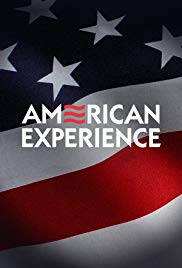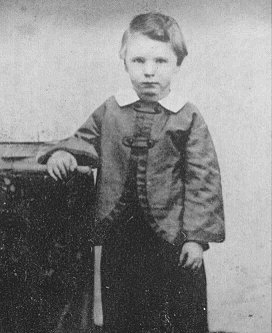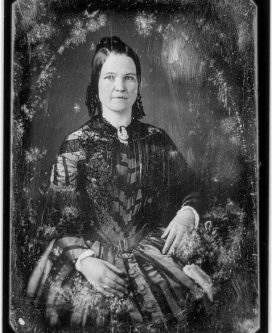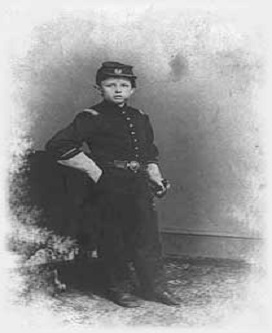This film is a documentary and provides its own historical background.
One of the many strengths of this series is the description of the development of Lincoln’s attitude toward African-Americans and the parallel change in his reasons for fighting the Civil War. At the beginning, for Lincoln and most of the North, the war was about preserving the Union. In 1860 Europe was controlled by a resurgent aristocracy with the U.S. standing as the world’s leading representative democracy. If it were not able to keep itself together, this would be further proof that democracy was not a viable governmental system. The cause of democracy would have been set back generations, if not completely discredited. Lincoln, while he hated slavery, had pledged during his first election campaign to permit the South to keep its “peculiar institution.” When he swore his oath as President, Lincoln swore to uphold the Constitution, which at the time had been interpreted by the Supreme Court as protecting the property rights of slaveholders. Even after the South seceded, Lincoln did not challenge the existence of slavery. Out of political necessity, he assured the slaveholders in the border states that they would not lose their slaves if they remained in the Union. In the early period of his Presidency, Lincoln proposed returning freed slaves to Africa.
However, freed slaves and other blacks served as soldiers and fought valiantly for the Union side. See Learning Guide to “Glory”. Lincoln came to believe that if blacks were willing to give their lives for the nation, they should also have the benefits of citizenship.
Faced with horrifically high casualties, Lincoln searched in his conscience for a reason for the war other than merely the maintenance of the Union, as important as that was. The Emancipation Proclamation issued on September 22, 1862, was a political, foreign relations, and war measure. It freed slaves only in areas not under the control of the Federal Government. In the Gettysburg address, see Learning Guide to “Gettysburg”, Lincoln combined the two goals, stating that the way to honor the fallen at Gettysburg was:
— that we here highly resolve that these dead shall not have died in vain; that this nation, shall have a new birth of freedom; and that this government of the people, by the people, for the people, shall not perish from the earth. (This Version from Hay Draft.)
By at least 1864 the Civil War had became a war to end slavery. Even before the war was over, Lincoln, by personally lobbying the Congress, attracting support from opposition Democrats as well as from Republicans, pushed through the 13th Amendment to the Constitution. From that time on, slavery was illegal throughout the nation. The 13th Amendment was passed by Congress on January 31, 1865.
Lincoln’s ultimate judgment as to the purpose and cause of the Civil War focused on the slavery issue. In his Second Inaugural Address, Lincoln put it this way:
Both [the North and the South] read the same Bible and pray to the same God, and each invokes His aid against the other. It may seem strange that any men should dare to ask a just God’s assistance in wringing their bread from the sweat of other men’s faces, but let us judge not, that we be not judged. The prayers of both could not be answered. That of neither has been answered fully. The Almighty has His own purposes. “Woe unto the world because of offenses; for it must needs be that offenses come, but woe to that man by whom the offense cometh.” If we shall suppose that American slavery is one of those offenses which, in the providence of God, must needs come, but which, having continued through His appointed time, He now wills to remove, and that He gives to both North and South this terrible war as the woe due to those by whom the offense came, shall we discern therein any departure from those divine attributes which the believers in a living God always ascribe to Him? Fondly do we hope, fervently do we pray, that this mighty scourge of war may speedily pass away. Yet, if God wills that it continue until all the wealth piled by the bondsman’s two hundred and fifty years of unrequited toil shall be sunk, and until every drop of blood drawn with the lash shall be paid by another drawn with the sword, as was said three thousand years ago, so still it must be said “the judgments of the Lord are true and righteous altogether.”
With malice toward none, with charity for all, with firmness in the right as God gives us to see the right, let us strive on to finish the work we are in, to bind up the nation’s wounds, to care for him who shall have borne the battle and for his widow and his orphan, to do all which may achieve and cherish a just and lasting peace among ourselves and with all nations.
The Second Inaugural was given on March 4, 1865. It is significant that Lincoln at first justified the war as an effort to protect democracy by keeping the Union. However, by its end, he could explain the bloodletting only in religious terms as a consequence of the sin of slavery and justify the immense number of casualties as needed to end slavery.
Lee surrendered the Army of Northern Virginia on April 9, 1865. Abraham Lincoln was shot to death by John Wilkes Booth on April 14, 1865.






